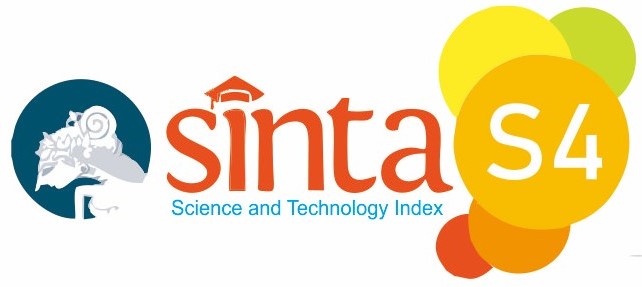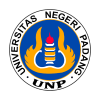MEMBANGUN MASA DEPAN PROFESIONAL: ANALISIS IMPLEMENTASI MODEL PROJECT-BASED LEARNING PADA PEMBELAJARAN TEKNIK PENGELASAN
Abstract
Studi ini bertujuan untuk menilai efektivitas model pembelajaran berbasis proyek (Project-Based Learning atau PjBL) dalam pendidikan pengelasan di sekolah vokasi. Penelitian ini menyelidiki bagaimana penerapan PjBL dapat memperkuat pemahaman siswa tentang konsep pengelasan dan dampaknya pada hasil belajar. Pendekatan penelitian ini menggunakan eksperimen dengan dua kelompok: kelompok eksperimen yang menerima pembelajaran dengan metode PjBL, dan kelompok kontrol yang menerima metode pembelajaran konvensional. Kedua kelompok terdiri dari 17 siswa dari SMK Negeri 1 Guguak. Data dikumpulkan melalui pre-test dan post-test untuk mengukur pemahaman siswa sebelum dan sesudah penerapan PjBL. Analisis data kuantitatif menggunakan perangkat lunak SPSS 16 untuk menghitung rata-rata, median, nilai minimum, dan maksimum. Hasil analisis menunjukkan bahwa kelompok eksperimen mengalami peningkatan yang signifikan dalam post-test, dengan rata-rata nilai 80,59, sedangkan kelompok kontrol memiliki rata-rata 75,59. Median kelompok eksperimen (80) juga lebih tinggi daripada kelompok kontrol (75), mengindikasikan bahwa PjBL dapat meningkatkan pemahaman siswa dalam pendidikan pengelasan. Namun, penelitian ini juga menemukan tantangan, seperti keterbatasan sumber daya dan pemahaman pendidik tentang metode PjBL. Kesimpulan dari penelitian ini adalah bahwa PjBL efektif dalam meningkatkan pemahaman siswa tentang pengelasan di sekolah vokasi. Rekomendasi penelitian ke depan meliputi eksplorasi faktor yang mendorong keberhasilan PjBL serta strategi untuk mengatasi hambatan dalam penerapannya. Studi ini memberikan landasan bagi pembuat kebijakan dan pendidik untuk mengembangkan pendidikan vokasi yang lebih baik dan relevan dengan dunia industri.
References
Adawiyah, R., & Mahmuddin, M. (2023). Effectiveness of Project-Based Learning in Improving Critical Thinking Skills and Environmental Concern Attitude in Vocational Students. Journal of Education Method and Learning Strategy, 2(01), 92–102. https://doi.org/10.59653/jemls.v2i01.390
Afanaseva, O., Bezyukov, O., Pervukhin, D., & Tukeev, D. (2023). Experimental Study Results Processing Method for the Marine Diesel Engines Vibration Activity Caused by the Cylinder-Piston Group Operations. Inventions, 8(3). https://doi.org/10.3390/inventions8030071
Al Khatib, A., Malhaire, J. M., Dauvé, S., & Fougères, A. J. (2023). Project-Based Learning for Engineering Students in the Context of Industry 4.0: Application To Automotive Assembly System. Proceedings of the Design Society, 3(July), 2965–2974. https://doi.org/10.1017/pds.2023.297
Ayanwale, M. A., Molefi, R. R., & Matsie, N. (2023). Modelling secondary school students’ attitudes toward TVET subjects using social cognitive and planned behavior theories. Social Sciences and Humanities Open, 8(1), 100478. https://doi.org/10.1016/j.ssaho.2023.100478
Cifrian, E., Andrés, A., Galán, B., & Viguri, J. R. (2020). Integration of different assessment approaches: application to a project-based learning engineering course. Education for Chemical Engineers, 31, 62–75. https://doi.org/10.1016/j.ece.2020.04.006
Dahalan, F., Alias, N., & Shaharom, M. S. N. (2024). Gamification and Game Based Learning for Vocational Education and Training: A Systematic Literature Review. In Education and Information Technologies (Vol. 29, Issue 2). Springer US. https://doi.org/10.1007/s10639-022-11548-w
Dorais, S. (2024). Time series analysis in preventive intervention research: A step-by-step guide. Journal of Counseling and Development, 102(2), 239–250. https://doi.org/10.1002/jcad.12508
Fatimah, F. S., Asy’ari, H., Sandria, A., & Nasucha, J. A. (2023). Learning Fiqh Based on the TAPPS (Think Aloud Pair Problem Solving) Method in Improving Student Learning Outcomes. At-Tadzkir: Islamic Education Journal, 2(1), 1–15. https://doi.org/10.59373/attadzkir.v2i1.13
Febnesia, H., Iman, A., & Supriyatna, D. (2023). The Influence Of Project Based Learning (Pjbl) For Students Creative Thinking Ability Of Twelfth Grade At Yabhinka Welding Techniques Vocational High School In Cilegon. Journal Neosantara Hybrid Learning, 1(2), 173–187. https://doi.org/10.55849/jnhl.v1i2.244
Huang, Z., Zheng, H., Li, C., & Che, C. (2024). Application of Machine Learning ‐ Based K ‐ means Clustering for Financial Fraud Detection. Academic Journal of Science and Technology, 10(1), 33–39.
Idris, R., Govindasamy, P., Nachiappan, S., & Bacotang, J. (2023). Exploring the Impact of Cognitive Factors on Learning, Motivation and Career in Malaysia’s STEM Education. International Journal of Academic Research in Business and Social Sciences, 13(6). https://doi.org/10.6007/ijarbss/v13-i6/17227
Jaggy, A. K., Kalkusch, I., Bossi, C. B., Weiss, B., Sticca, F., & Perren, S. (2023). The impact of social pretend play on preschoolers’ social development: Results of an experimental study. Early Childhood Research Quarterly, 64(January), 13–25. https://doi.org/10.1016/j.ecresq.2023.01.012
Jalinus, N., Haq, S., & Kassymova, G. K. (2023). Work-based learning for the engineering field in vocational education : Understanding concepts , principles and best practices. Journal of Engineering Researcher and Lecturer, 2(1), 9–17. https://doi.org/10.58712/jerel.v2i1.22
Knief, U., & Forstmeier, W. (2021). Violating the normality assumption may be the lesser of two evils. Behavior Research Methods, 53(6), 2576–2590. https://doi.org/10.3758/s13428-021-01587-5
Kotronoulas, G., Miguel, S., Dowling, M., Fernández-Ortega, P., Colomer-Lahiguera, S., Bağçivan, G., Pape, E., Drury, A., Semple, C., Dieperink, K. B., & Papadopoulou, C. (2023). An Overview of the Fundamentals of Data Management, Analysis, and Interpretation in Quantitative Research. Seminars in Oncology Nursing, 39(2), 1–9. https://doi.org/10.1016/j.soncn.2023.151398
Liu, M., Zhang, X., Yang, B., Yin, Z., Liu, S., Yin, L., & Zheng, W. (2023). Three-Dimensional Modeling of Heart Soft Tissue Motion. Applied Sciences (Switzerland), 13(4). https://doi.org/10.3390/app13042493
Lund, H. B., & Karlsen, A. (2020). The importance of vocational education institutions in manufacturing regions: adding content to a broad definition of regional innovation systems. Industry and Innovation, 27(6), 660–679. https://doi.org/10.1080/13662716.2019.1616534
Nur, S., Lakoro, Q., & Lengkoan, F. (2023). The Effectiveness of Digital Learning Curriculum 2013 in Pandemic. Journal of English Culture, Language, Literature and Education, 11(2), 264–276. https://doi.org/10.53682/eclue.v11i2.7424
Romadin, A., Nuhadi, D., & Yoto, Y. (2022). Implementation of Work Based Learning on Welding Engineering Expertise Competency in The Manufacturing Industry. Journal of Vocational Education Studies, 5(1), 16–31. https://doi.org/10.12928/joves.v5i1.5674
Saad, A., & Zainudin, S. (2022). A review of Project-Based Learning (PBL) and Computational Thinking (CT) in teaching and learning. Learning and Motivation, 78, 101802. https://doi.org/10.1016/j.lmot.2022.101802
Supena, I., Darmuki, A., & Hariyadi, A. (2021). The influence of 4C (constructive, critical, creativity, collaborative) learning model on students’ learning outcomes. International Journal of Instruction, 14(3), 873–892. https://doi.org/10.29333/iji.2021.14351a
Suryati, L., Ambiyar, A., Ahyanuardi, A., Efronia, Y., & Rahmadhani, S. (2023). The Urgency of Increasing Teacher Vocational Competence in the Era of Society 5.0. Edumaspul: Jurnal Pendidikan, 7(2), 6017–6031. https://doi.org/10.33487/edumaspul.v7i2.7588
Syahroni, M. (2020). Pelatihan Implementasi Media Pembelajaran Interaktif Guna Peningkatan Mutu Pembelajaran Jarak Jauh. International Journal of Community Service Learning, 4(3), 170–178. https://doi.org/10.23887/ijcsl.v4i3.28847
Wang, L. (2024). Development Path of Hotel Tourism Specialization in Vocational Schools based on the Integration of Industry-University-Research Integration. Journal of Innovation and Development, 6(1), 40–43. https://doi.org/10.54097/n8sa5k49
Zhang, L., & Ma, Y. (2023). A study of the impact of project-based learning on student learning effects: a meta-analysis study. Frontiers in Psychology, 14(July), 1–14. https://doi.org/10.3389/fpsyg.2023.1202728
Submitted
Copyright (c) 2024 Jurnal Vokasi Mekanika

This work is licensed under a Creative Commons Attribution 4.0 International License.








.svg_.png)


